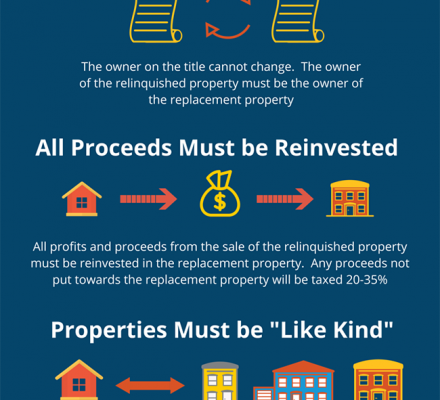
If you invest in real estate (a rather popular pursuit in this day and age), you’ve likely come across the phenomenon of the 1031 exchange. (Or, if you haven’t, you’re frantically trying to figure out what exactly one is and what it can do for you). To put it simply, a 1031 tax exchange is a way for property owners to sell property and immediately purchase another property “of like kind†without paying the capital gains tax in the interim. What does this mean for you as a real estate owner? It means that when selling one property in order to buy another (a common occurrence), it is possible to structure the transaction in a way that minimizes the immediate tax burden you must shoulder.
Generally, a real estate sale constitutes a fairly significant tax event. Why? Most of the time (or at least we hope most of the time), a property has gained value between the time that you purchased it and the time that you attempt to sell it. That increase in value of something you own, then, constitutes a capital gain: an increase in the worth of something you own and, therefore, increased capital. Taxes are owed to the government on capital gains much in the same way that income from a job is taxed: a percentage of the increased value is paid through the federal capital gains tax.
1031 Tax Exchanges
This capital gains tax can hamper your ability to sell and purchase properties because it often represents a significant loss of investment equity: you don’t walk away from the sale with the full amount of increased value. This can substantially affect the amount of money you have available for purchasing your next property.
A 1031 exchange, then, represents a way for you as a real estate investor to sell one property and purchase another without losing investment equity (which, after all, is what you’re ultimately trying to build) to the capital gains tax. This allows you to re-invest your real estate earnings immediately and (hopefully) build your investment assets much more quickly and efficiently. In 1031 tax exchanges, you effectively defer payment of the tax that you owe until a later date. The 1031 tax exchange, then, doesn’t make the tax go away (it is illegal to evade this tax completely) – but it does give you use of your money right now when you need it most.
Savvy real estate investors know how to use 1031 exchanges to their advantage – and it is in your best interest as a businessperson to learn the ins and outs of 1031 tax exchanges before your next real estate transaction.



